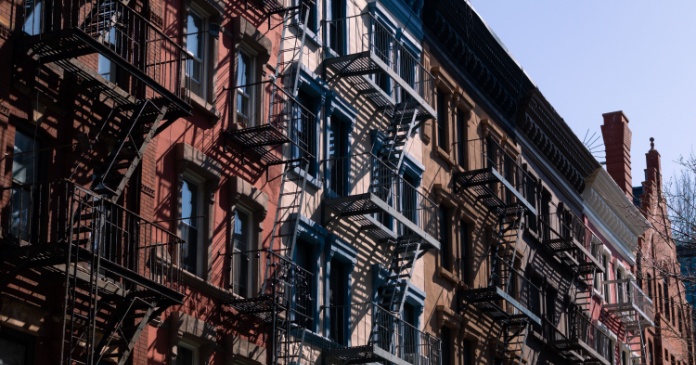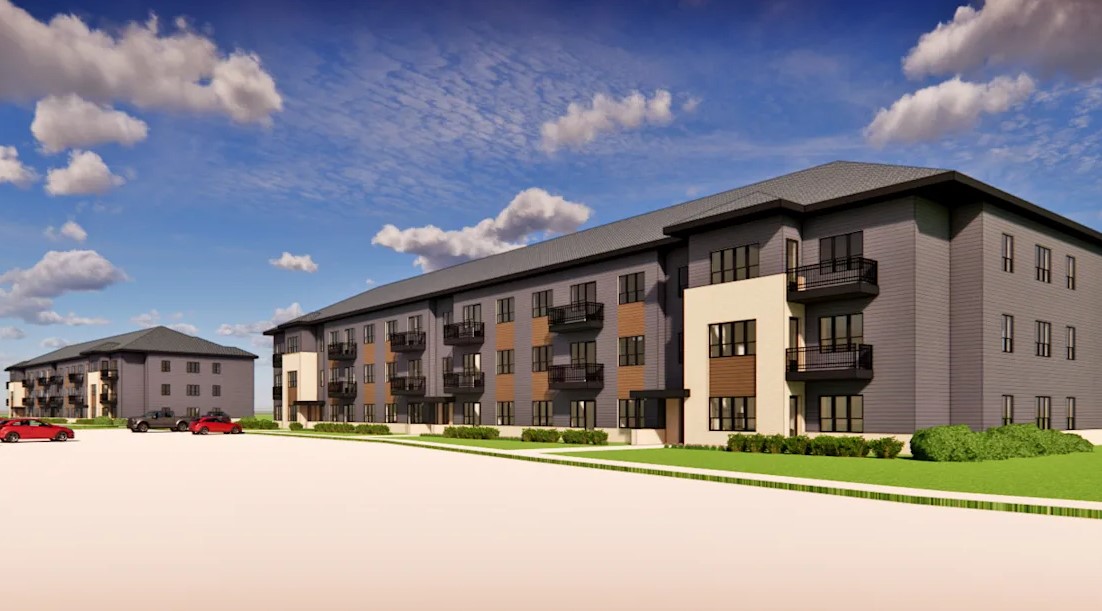The term virtue refers to one’s character. Obviously, this conception of virtue implies that there exists a common human nature that allows us to identify certain characteristics that an excellent person possesses. Prior to the 19th century this kind of claim was relatively uncontroversial. At the time of the American founding the language of virtue was widely employed, and though writers meant a variety of things by the term, nearly all affirmed the existence of a moral order created by God and to which humans were obligated. Even today, where metaphysical claims about human nature or moral reality are less widely affirmed, most of us recognize at some level the goodness of courage, self-control, wisdom, generosity, and so on. We praise people with such characteristics and we criticize those who are cowardly, feckless, foolish, and stingy.
The ownership of property is one means by which certain virtues necessary for a healthy and free society can be cultivated. Conversely, policies that undermine the institution of private property destroy an important venue in which the virtues are formed. How does private property aid in the formation of virtue? To answer this question, it is necessary to consider, briefly, how character is formed.
Aristotle, that sensible Greek, taught that virtues are acquired through habit. Habits are formed through repetition until an action becomes second-nature. When a person performs an action simply because “that’s the way I do things,” he has acquired a habit. The formation of habits often requires pain or discomfort. We set up conditions to incentivize a particular behavior. At first we are uncomfortable, even miserable. But eventually we come to take pleasure in this new way of being and acting. When we come to find pleasure in the act (or when we find that not performing a particular act is unpleasant), we have formed a habit. Exercise is a good example.
When we begin to exercise, it hurts. Everything in us screams to quit. To stay in bed. To continue on the path of least resistance, which means the couch with the Doritos. However, once we begin to experience the benefits of exercise, once our bodies (and minds) become accustomed to the new regimen, we feel bad when we don’t exercise. Something has changed. A habit has been formed. Our character has taken on a particular shape.
Property ownership, self-government
The ownership of property can help shape virtues conducive to self-government, for when we exercise dominion over a piece of productive property, we are compelled to submit to limits imposed by the reality of the property. We are drawn into a context where our creativity is required, but we must also recognize that our creative efforts must conform to the contours of the particular property over which we have control.
In simple terms, one cannot, through an act of creative will, make a hammer be a saw or turn a horse into a fish or compel a piece of land in Montana to grow banana trees. We must seek to understand the nature of the property we possess and work within the parameters of that nature if we are to be successful. In other words, we must learn the wisdom of limits. We must learn to see the world not simply as raw material upon which we can impose our infinitely creative wills but rather as consisting of particular things and places with particular potentialities and limits. In learning the wisdom of limits, we simultaneously learn to see opportunities latent in the world around us and more specifically in the property that we own.
The wisdom of limits is, in a way, a combination of two classical virtues: wisdom and self-control. We attain wisdom when we come to see the world more accurately. It is foolishness to seek to impose a false structure upon the world. It is lunacy to demand that the basic structure of the world be other than it is. Wisdom is accurately seeing and acting in accordance with reality. It is a kind of submission to the order of reality. Self-control is the ability to govern ourselves. Self-government is not, in its most basic form, a theory of politics or social power. Self-government in the political sense requires self-government in a more personal sense. Each of us must learn to govern our impulses, appetites, and desires. If we are habituated into incessantly demanding that our desires be satisfied by the state—in other words, if we behave like spoiled children—we are fundamentally ill-equipped for political self-government, for we have shown ourselves ill-equipped for personal self-government.
When a person owns productive property—that is to say, capital—there exists the opportunity to practice the art of self-sufficiency and with it the virtue of neighborliness. Productive property calls forth a variety of skills that are necessary for the maintenance and improvement of that property. Productive property requires work, intelligence, and the development of skills that can be put to use in a variety of contexts. When a person has the skills necessary to provide for himself, he is less inclined to look to the state for assistance. He may even develop a sort of fierce pride in his independence and steadfastly refuse to be seduced by the siren’s song of goods and services from the omni-benevolent hand of the state.
When a person owns property that will either improve with care or diminish with neglect, the need to provide for oneself and one’s family—or the desire to succeed more generally—will summon the virtue of responsibility. When property may be improved over time, one must attend to the painstaking work of planning for the future. With that, one must be willing to sacrifice pleasure, benefits, or leisure in the present for the sake of greater pleasure, benefits, or leisure in the future. The ability to defer gratification is, as any parent knows, a mark of maturity. It is not something that comes naturally to children, who generally need to be compelled or convinced to put off immediate gratification for a better future.
Deferred gratification may be natural in ants and bees, but it comes much harder for most humans. The ownership of property can aid in this process.
Closely related to planning for the future is the virtue of thrift, an ideal that many Americans are forgetting as the Depression Generation passes off the scene. Some of us can recall parents or grandparents who obsessively saved every shred of paper and every scrap of food. They did this because they could remember years of scarcity. They knew firsthand what it was like to have less than enough, and those experiences shaped them profoundly. They knew how to make do, fix things, and do without.
Montesquieu insisted that the virtue of frugality was vital for a healthy republic. A frugal person is one who cares well for his wealth and possessions. He is a good steward of his property. He is well aware that circumstances are fragile and that a wise person will avoid lavish spending and care for his property to provide a buffer against hard times. Montesquieu believed frugality in citizens is an indicator of self-control and a pre-condition of self-government. A frugal person is one whose tastes run toward the simple rather than the lavish, who doesn’t shy away from hard work, who is quite willing to sacrifice material comfort for the good of the community, and who expects the same of his fellow citizens.
All these might be called middle-class virtues. As the young people today might put it, these are the adulting virtues: a bit boring, perhaps, but vital for successfully transitioning into the world of responsible adulthood. These are not the heroic virtues. Instead, they are the day-to-day virtues necessary for a good, stable, and free society.
Middle-class society
It is not hard to imagine a society consisting of citizens who do not possess some or most of these middle-class virtues. If citizens lack any notion of proper limits, of self-control, personal responsibility, or the ability or inclination to defer gratification for the sake of a better future, such a society would be gravely ill. In fact, such a society would seem to resemble nothing so much as a society of petulant children.
As we have seen, a spoiled child needs, above all else, the firm hand of an adult. But in a society of spoiled children, who plays the adult? Obviously, the state most readily comes to serve that function, and the relationship is both mutually beneficial, mutually re-enforcing, and perverse, for unlike good parents who encourage their children to grow up, the state encourages perpetual childhood.
The state wants, perhaps more than anything else, to expand its power and prerogative. This is a fundamental tendency of all political power. The state wants to expand, and a society of spoiled children demands to be cared for. But the state is never satisfied with its power, and spoiled children are never satisfied with the concessions and gifts of their enablers. Both want more, and they will get it, for both desire what the other can provide: the state wants power, and immature citizens want goods and services.
It would seem to be a win-win situation with one small cost: freedom. And even this is cloaked behind an alluring mirage. A life without responsibility or a life without care for the future would seem to be a life of the most perfect freedom if, that is, perpetual childhood is the goal.
However, freedom suited to a society of self-governing citizens requires more than a demand for an endless stream of publicly funded goods and services complemented by an endless stream of technological diversions. True freedom requires both the opportunity and inclination to think and live responsibly, to willingly sacrifice one’s self for others, to plan for the future, to live within one’s means, to fix and repair that which is broken, to celebrate the good gifts of hard work and commensurate reward in the company of friends and family to whom we are committed and who are committed to us.
True freedom is not the absence of obligation or responsibility. It is not a life of endless pleasure and the avoidance of hard work. Freedom worthy of a society of self-governing men and women includes both sacrifice and service.
The ownership of private property doesn’t guarantee virtue nor does it guarantee freedom. It may be that other conditions are necessary for the benefits of property ownership to be fully realized. However, a society consisting of propertied citizens is more likely to foster the conditions for adulthood than any other. Thus, it would seem that when citizens no longer own property, they will very likely lose the opportunity to own property, and eventually they will lose the inclination to own it. They will, however, seek to alleviate their persistent sense of economic insecurity by looking to the only entity that seems powerful enough to help, namely, the state.
Property, power go hand-in-hand
And because property and power go hand-in-hand, concentrations of property lead inevitably to plutocracy. Thus, the decline of property ownership sets the stage for the dramatic expansion of personal vice and state power—a fundamentally unstable combination. It establishes the conditions that lead citizens to demand from the state what they once demanded from themselves.
In the context of contemporary America, the decline of property ownership set the stage for Plutocratic socialism, and the rise of the social justice movement gave this new iteration of socialism its distinctive woke flavor characterized by the revolutionary rhetoric, radicalism, and violence we are currently witnessing.
Author Mark T. Mitchell, professor and chairman of Government at Patrick Henry College













